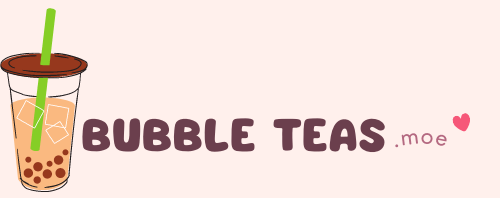Tea Topping - Grass jelly: Health Benefits, Flavor Profile, and Nutrition Facts
Discover the unique characteristics and nutritional benefits of Grass jelly, a popular Tea Topping used in bubble tea. Learn how this ingredient contributes to the flavor profile and nutritional value of your favorite bubble tea beverage.
Grass jelly Health Benefits:
Grass jelly is made from the leaves and stalks of the Mesona plant, which is believed to have cooling properties according to traditional Chinese medicine. It is low in calories and contains trace amounts of protein, calcium, and iron. While it does not offer significant health benefits, it can be a refreshing and low-calorie addition to bubble tea. For a more nutrient-dense option, consider adding chia seeds, which are high in omega-3 fatty acids, fiber, and protein, or fresh fruit bits for their vitamins, minerals, and dietary fiber.
Grass jelly Flavor Profile:
Grass jelly is a unique topping for bubble tea that provides a refreshing, subtly herbal flavor and a smooth, gelatinous texture. Made from the leaves and stalks of the Mesona plant, grass jelly has a mildly sweet and slightly bitter taste that pairs well with a variety of tea and fruit flavors. The cooling properties of grass jelly, according to traditional Chinese medicine, make it a popular choice for hot weather or as a soothing addition to bubble tea. The slippery and smooth texture of grass jelly offers a pleasant contrast to the chewiness of tapioca pearls or the bursting sensation of popping boba, adding a new dimension to the bubble tea experience.
Grass jelly Nutrition Facts:
Grass jelly is made from the leaves and stalks of the Mesona plant, which is a member of the mint family. The plant is boiled in water, and the resulting liquid is cooled and solidified into a jelly-like consistency. Grass jelly is low in calories, with a typical 1 ounce (28 grams) serving containing about 10-15 calories. The primary components of grass jelly are water, carbohydrates in the form of starch, and trace amounts of protein and fiber. It also contains small amounts of minerals like calcium, potassium, and phosphorus. However, grass jelly does not provide significant amounts of vitamins, protein, fat, or other essential nutrients. While grass jelly can be a low-calorie topping option for bubble tea, it offers limited nutritional value overall. For a more nutrient-rich option, consider using aloe vera, chia seeds, or basil seeds.
Number of Calories in Grass jelly
Grass jelly contains 60 calorie(s) per 8-ounce serving. This data is obtained from the official FDC US Source which measures based on set standards for the industry.
This low-calorie count makes Grass jelly a suitable option for those watching their daily caloric intake. Using this as part of a drink would be fine as long as you are not taking it in large amounts every day.
Grass jelly Sugar Content:
Grass jelly contains 13.5 gram(s) of sugar per 8-ounce serving.
The low sugar content nature of Grass jelly makes it a healthy choice for those looking to reduce their sugar intake; however, be mindful of added sugars from sweeteners and flavorings in bubble tea. This can be especially true when adding extra sugar or multiple toppings on top of your drink.
Grass jelly Fat Content:
Grass jelly contains 0 grams of fat per 8-ounce serving
With 0 grams of fat content, Grass jelly is an excellent choice for those on low-fat diets or looking to maintain a balanced diet. Just be sure to not go overboard on the toppings or sweeteners!
Grass jelly Protein Content:
Grass jelly contains 1.22 grams of protein per 8-ounce serving
While Grass jelly doesn't contribute to daily protein needs, it can still be enjoyed as part of a balanced diet that includes other protein sources.
Grass jelly is a versatile Tea Topping that can enhance your bubble tea experience with its unique flavor profile and nutritional benefits. Enjoy Grass jelly in moderation as part of a balanced diet and explore different combinations of bubble tea ingredients to create your perfect beverage.
Full Nutrient Table for - Grass jelly
The table below uses data obtained officially from the FDC US Department of Agriculture Website.
| Nutrient Name | Amount | Unit |
|---|---|---|
| Water | 84.39 | g |
| Energy (kcal) | 60 | kcal |
| Energy (kJ) | N/A | kJ |
| Protein | 1.22 | g |
| Total lipid (fat) | 0 | g |
| Carbohydrate | 14.19 | g |
| Fiber | 0 | g |
| Sugars | N/A | g |
| Caffeine | 0 | mg |
Auto Amazon Links: No products found.
